8 Types of Automatic Gates Perfect for Privacy and Style
Consider these gates before you push that “order” button


An automatic gate is the ultimate luxury. It gives your home privacy and security; all you have to do to get in or out is press a button from the comfort of your car. But there are several types of automatic gates to choose from, not all of which may fit your exact needs. Let’s explore every type of automatic gate, so you can decide which is best for guarding your home base.
Driveway gates add value and security to your home. To maximize your ROI, consider contacting a pro for this project.
1. Sliding Gate

Sliding gates simply slide to the left or right using rollers. If you choose a sliding gate, ensure the wheels don't roll across your grass, soil, or concrete because they can cause damage.
| Pros | Cons |
|---|---|
| Space-efficient | Challenging to install |
| Enhanced security | Higher cost |
| Aesthetic appeal | Requires regular maintenance |
| Suitable for sloped driveways | Can damage grass or concrete |
Best for: Homes with limited space for swinging doors or driveways on a slope or with uneven terrain or sloped.
2. Cantilever Gate

Cantilever gates are almost identical to sliding gates in that they open to the left or right. But there is one caveat: rather than using rollers and wheels, this system utilizes rails instead, like how garage doors work.
Because these automatic gates are suspended in the air when the gate is closed, they require extra width to balance out the weight. This doesn’t make them practical if you’re working with limited space—you often only find cantilever gates on large properties or commercial properties.
| Pros | Cons |
|---|---|
| Space-efficient | Complex installation |
| Adaptable to uneven terrain | High-cost |
| High level of security | Requires regular upkeep |
Best for: Commercial or large properties where high security is required.
3. Bi-Folding Gate
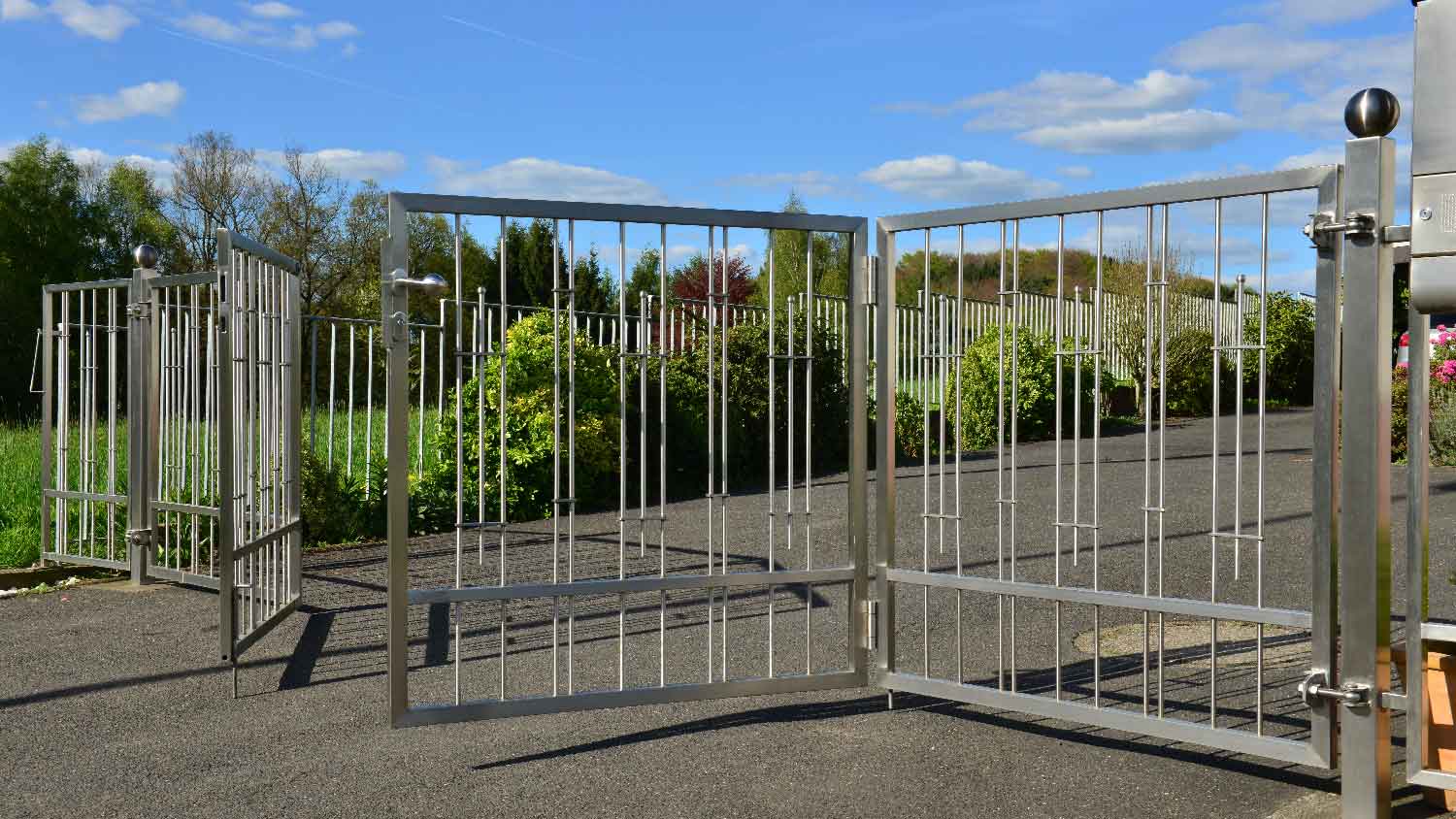
Bi-folding gates bring accordion-style doors to the gate world. The system opens the gate from the middle and causes the two sides to fold in like an accordion. It’s perfect for homeowners who have limited space for a gate and who aren’t that concerned with appearance.
But if aesthetics is a consideration, you should skip over bi-folding gates, which aren't often available in wood or vinyl. But you can always customize the metal options to fit the gate aesthetic you're going for or check out ideas for privacy fences.
| Pros | Cons |
|---|---|
| Space-efficient | Less visual appeal |
| Quick operation | Costly |
| Adaptable to uneven ground | Limited gate length |
Best for: Homes where space or uneven terrain is a concern.
4. Swing Gate
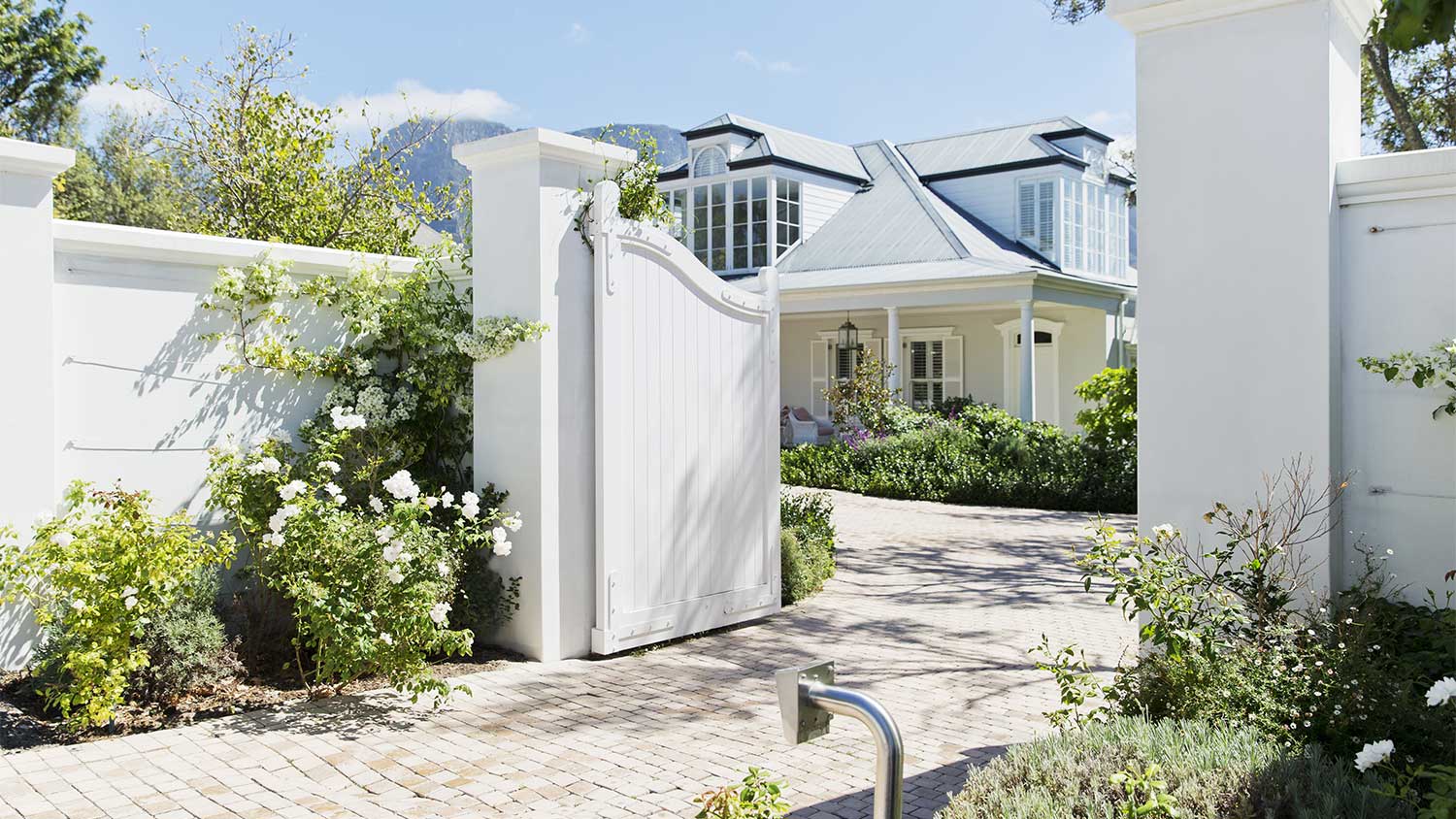
Swing gates are a popular choice for residential properties—if you have the space to accommodate them. Like a door, this type of gate opens via hinges. They also come in many different styles, so if you want a nice wooden gate that compliments your fence, you’re more than covered. You’ve also got plenty of gate latch types to choose from to fit your aesthetic.
Most swing gates won’t fully open to a full 180 degrees. Instead, they open to about 110 to 140 degrees from the closed position. This is to ensure it doesn’t hit the other side of the gate.
If you install a swing gate close to your fence, you might encounter spacing issues. So, ensure you have enough clearance for it to function without damaging the fence.
| Pros | Cons |
|---|---|
| Cost-effective | Requires ample space |
| Low-maintenance | Not suitable for sloped driveways |
| Simple installation | Slow operation |
| Classic aesthetic | May pose a security risk |
Best for: The average homeowner looking for a cost-effective, visually appealing gate.
5. Vertical Lift Gate
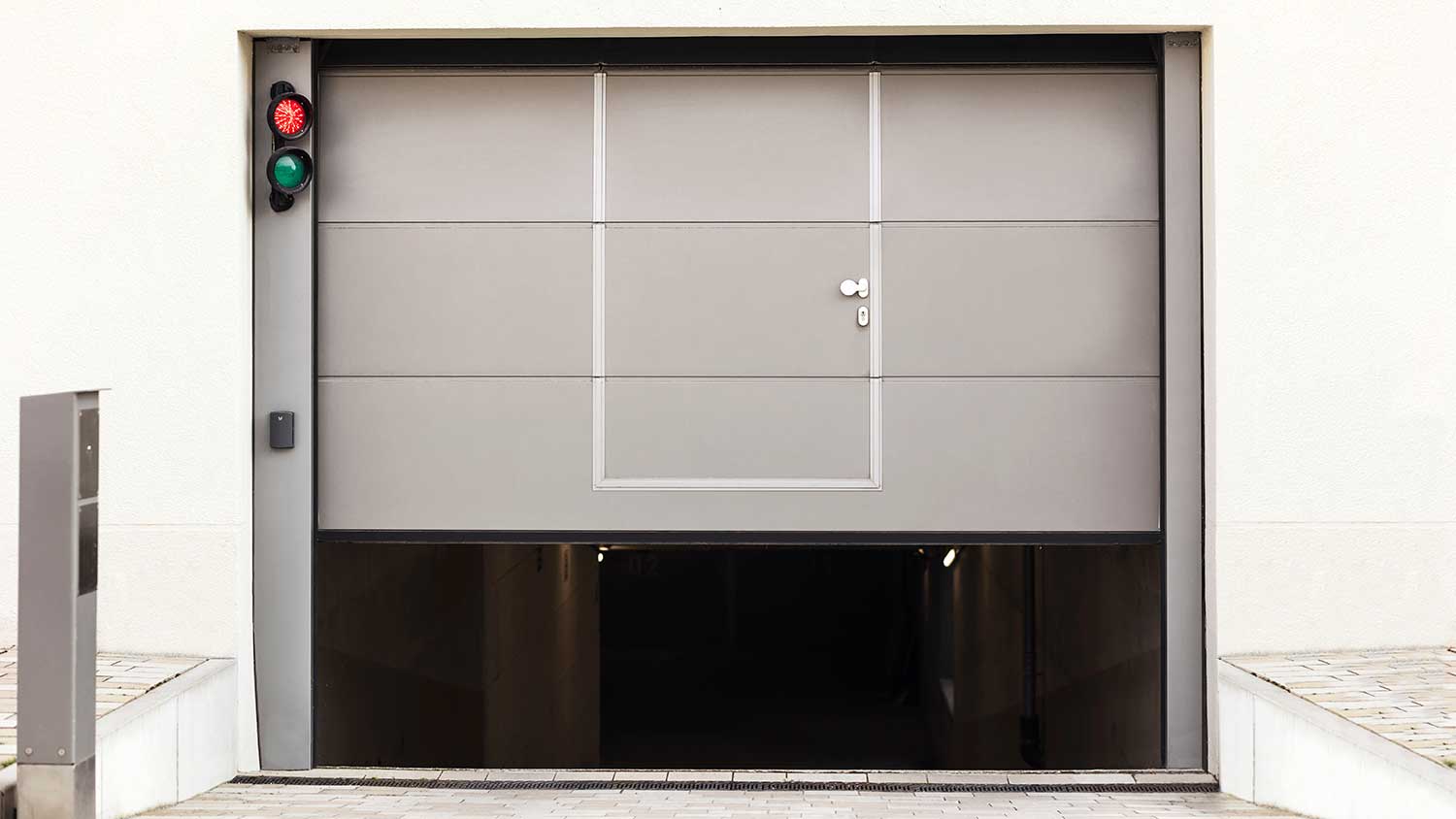
Vertical lift gates are exactly what they sound like—they open vertically. You can either have two vertical rails on either side of the gate that lift it straight up or have an arm that opens the gate by swinging it up. Either way, you’re going to need vertical support to ensure the gate doesn’t come crashing down.
These types of gates are great for areas that don’t have room for swing or cantilever gates. But because vertical lift gates often require an increase in vertical length, not all residential areas allow them. These types of gates are still mostly considered industrial, so you’ll only find them in commercial areas or in parking garages.
| Pros | Cons |
|---|---|
| Space-efficient | High cost |
| Quick operation | May have restricted use |
| Modern aesthetic | Complex installation |
| Secure | Not suitable for wide driveways |
Best for: Commercial properties or parking garages.
6. Vertical Pivot Gate
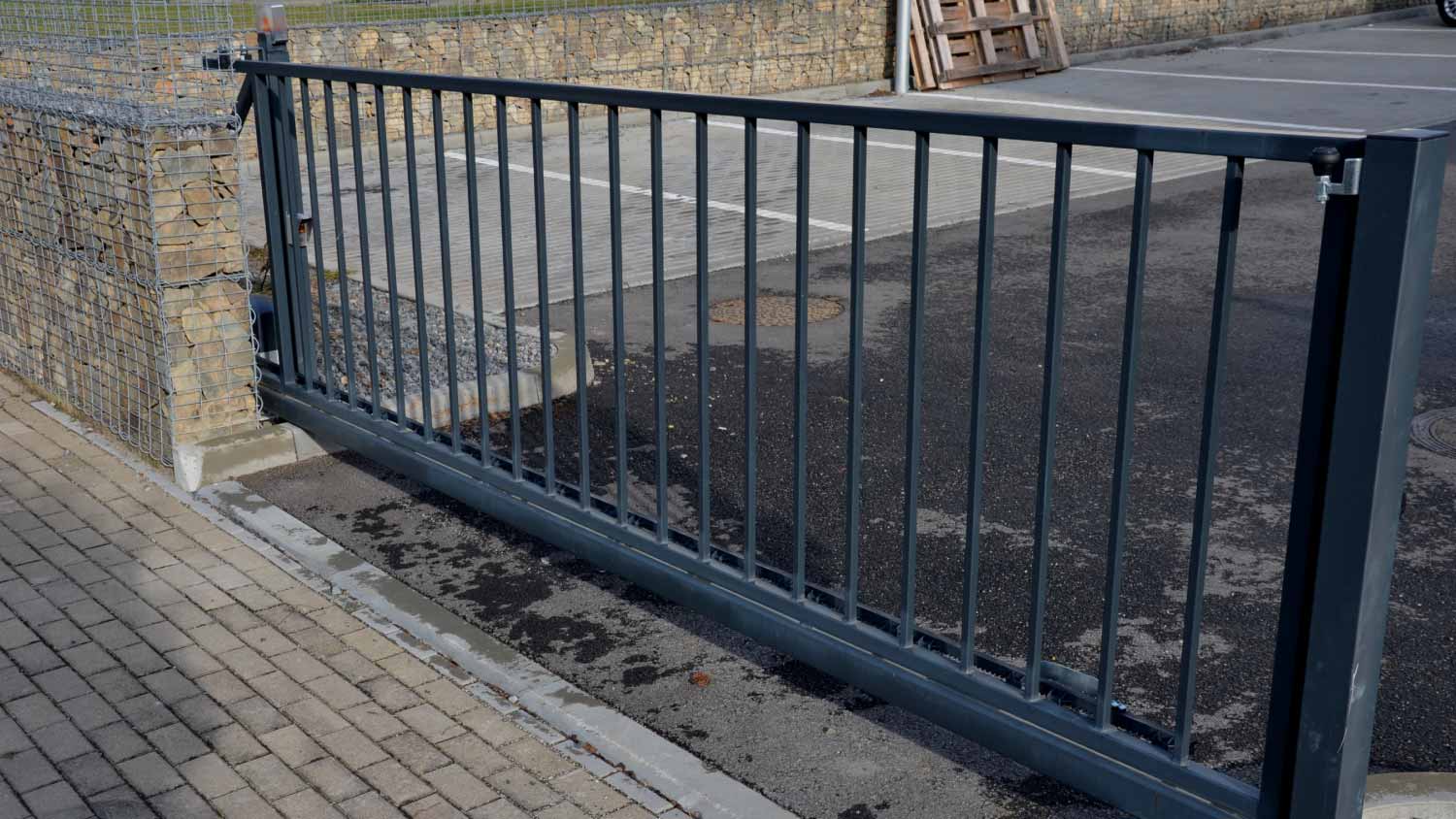
A vertical pivot gate almost makes your automatic gate do a somersault by pivoting upward on a bottom corner. This offers the space-saving features of the vertical lift gate without looking unsightly.
These types of gates are often the most difficult to open manually. Because they only utilize one pivot point, they also become easier to break.
| Pros | Cons |
|---|---|
| Space-efficient | Costly |
| High-security | Difficulty with manual open |
| Quick operation | Complex installation |
| Adaptable on uneven ground | Easy to break |
Best for: Commercial properties looking for a modern aesthetic.
7. Arm Gate

Arm gates are the simplest options and don’t necessarily work as gates, but more as stopping points. They’re often found in front of businesses, entrances to gated suburbs, or apartment/condo complexes.
| Pros | Cons |
|---|---|
| Cost-effective | Limited security |
| Quick operation | Vulnerable to damage |
| Visible deterrence | Requires vertical space |
| Easily adaptable | Limited aesthetic options |
Best for: Commercial properties where security isn't a huge concern.
8. Curving Sliding Gate
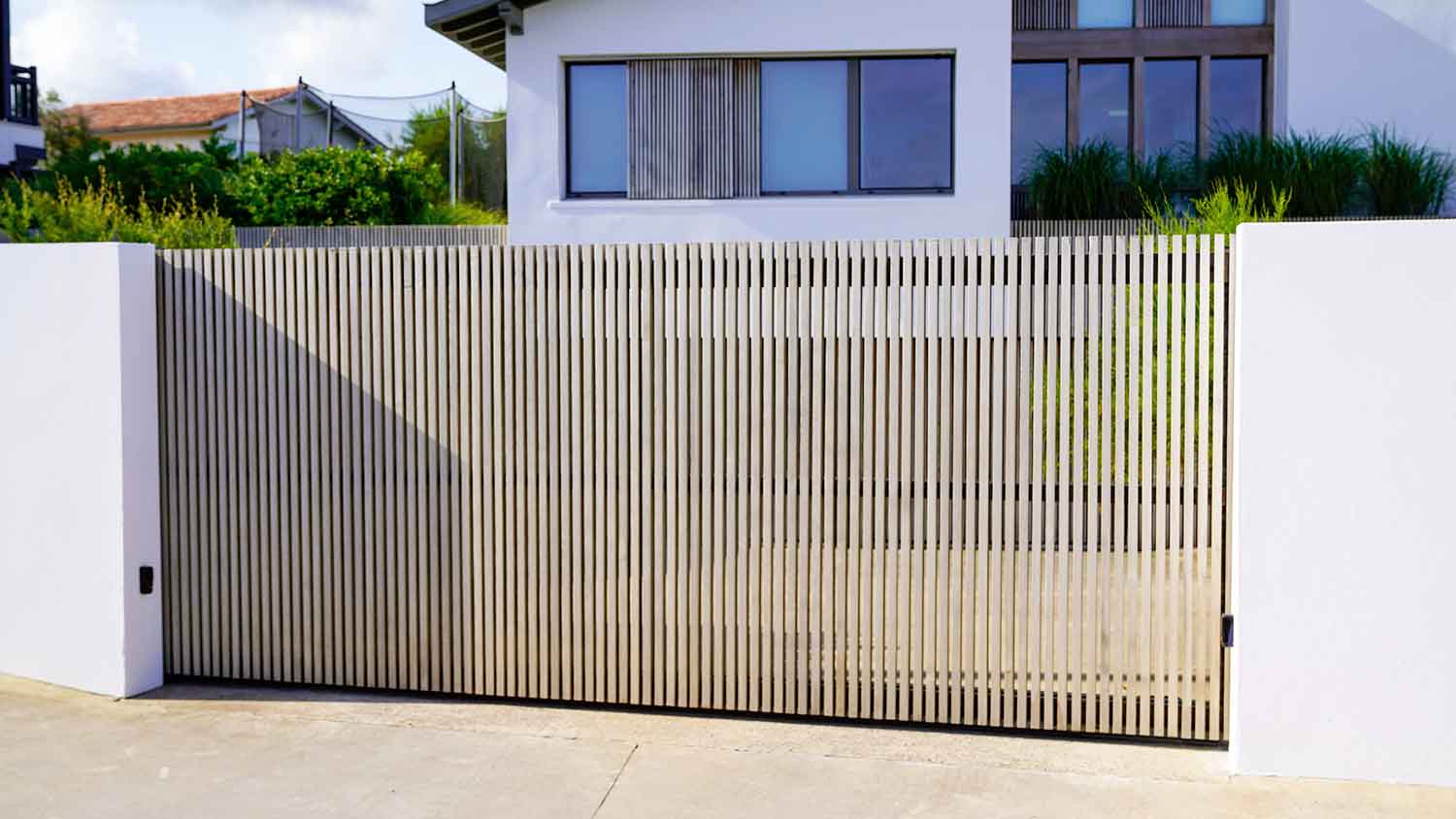
Curving sliding gates are a great option for homes with limited space. The design allows the gate to fold in on itself, thus the curve, as it opens. Basically, they make use of every inch of available space, providing an elegant solution to properties with limited street frontage. By their very nature, curving sliding gates are custom-built to fit the unique needs of the property better. This puts them on the expensive side, so they may not be for everyone.
| Pros | Cons |
|---|---|
| Aesthetic appeal | Costly |
| Space-efficient | Complex installation |
| Adaptable to uneven terrain | Not suitable for wide driveways |
Best for: Homeowners looking for a luxury gate design.
How Much Does It Cost to Install a Gate?
The average gate installation cost ranges between $880 and $3,830 but varies depending on the gate's material and design. Chain link and vinyl gates tend to be on the lower end, averaging between $200 and $1,000, while wood or metal gates can cost up to $8,500. Fence gate sizes also factor into the cost, particularly due to the increase in materials required. Hiring a local gate installer is highly recommended to ensure appropriate installation and a design that fits your property needs.
Frequently Asked Questions
The obvious disadvantage of an automatic gate is that it runs on electricity. If the power goes out, it won’t open or close unless there’s a manual override. Many homeowners will need a backup generator so they don’t get stuck on either side of the gate, particularly when looking to park a vehicle. Automatic gates are also much more complicated than manual gates, with tech-heavy components that make them more expensive to repair.
Automatic gate openers last around 10 years, but this time span depends on several external factors, like the type of gate they're attached to and how well you’ve kept up with general maintenance. Despite lasting a decade, you should still expect to complete one or two repairs in that time, as some components will fail before others.
Most electric gates have a manual override function, allowing homeowners to open them by hand if need be, which comes in particularly handy during power outages. This feature guarantees that access to the property is still possible even without electricity powering the gate's automatic system. You can activate the manual override using a key or a specific tool. Before an outage happens, it’s wise to familiarize yourself with the manual opening procedure and keep the required tools or keys in an accessible area.
Even if you have extensive experience working with electronics or gates, we recommend leaving this repair to a local gate repair professional. Small tasks, such as battery replacement or debris removal, can be DIY projects, but more involved repairs require a pro’s skills and knowledge. Whenever wiring is involved, it’s easy to cause serious damage to your gate’s system, which can lead to bigger, more costly problems.



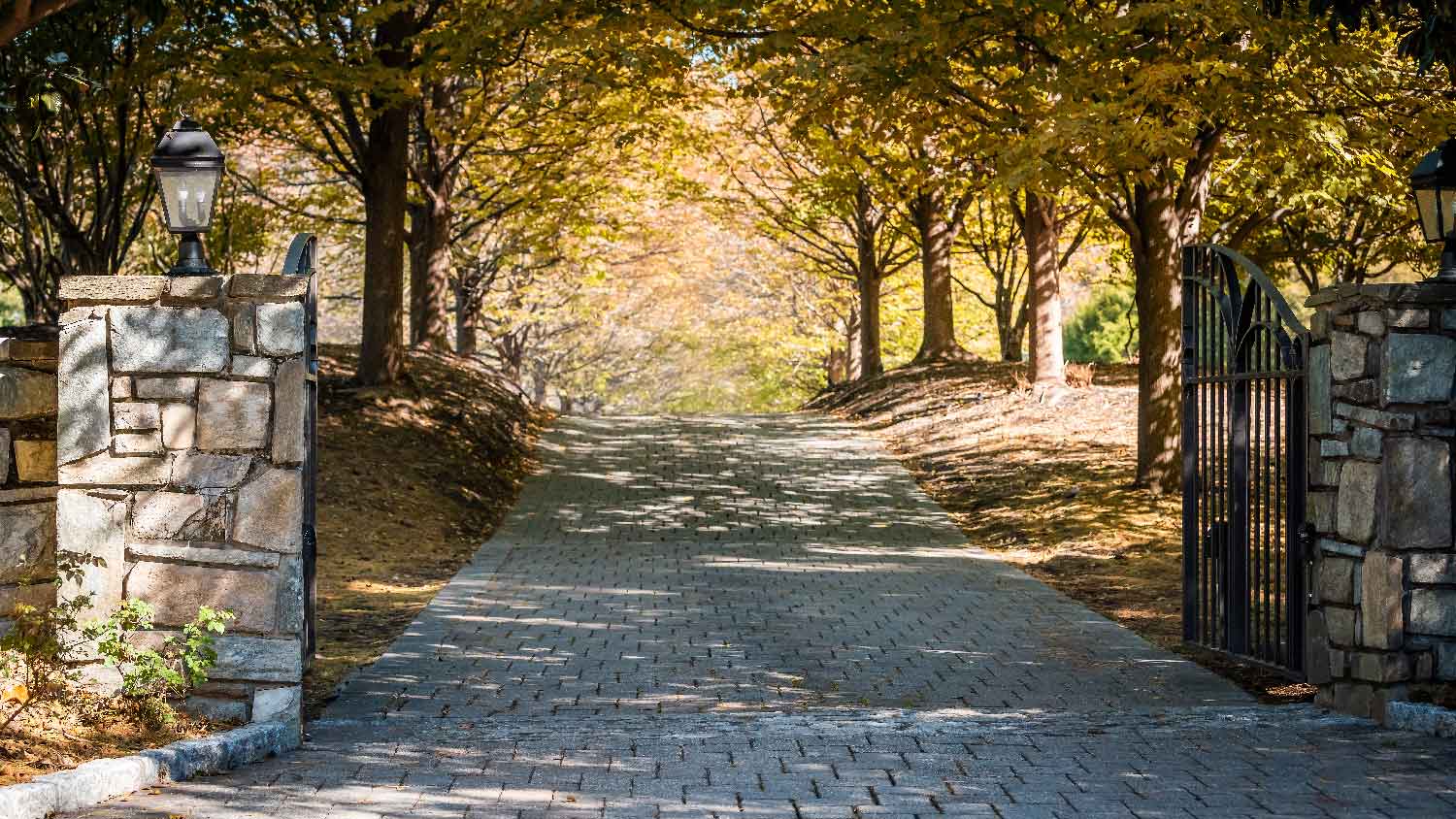

- 5 Types of Security Gates: How to Pick the Right Gate
- Parts of a Sliding Gate: A Complete Guide
- Do Driveway Gates Add Value to Your Home?
- How to Cover a Metal Gate for Privacy: 5 Potential Methods
- Who to Hire to Install an Automatic Driveway Gate
- How to Fix a Gap Under a Fence Gate: 3 Simple DIY Methods
- 6 Popular Gate Latch Types and How to Choose the Right One
- 5 Gate Hinge Types and How to Choose the Right One
- 9 Types of Hinges and How to Choose the Best One for You
- 11 Tips to Keep Your Dog From Running Away From Home











